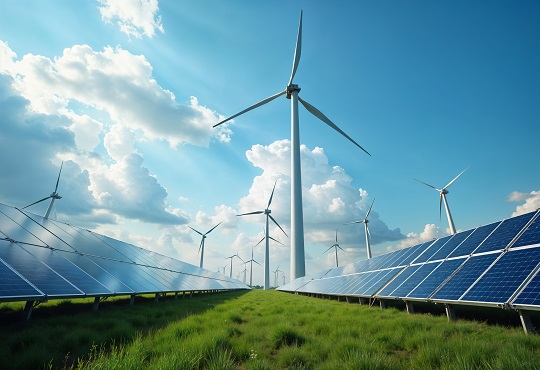Meta Taps 791 MW Clean Energy from Invenergy to Power AI Growth
CIOTech Outlook Team | Friday, 27 June 2025, 10:00 IST

- Meta and Invenergy sign deals for 791 MW of solar and wind power.
- Partnership with Invenergy reaches 1,800 MW to support Meta’s AI data centers.
- Meta secures clean energy credits from projects in Ohio, Arkansas, and Texas.
Meta Platforms, a leading social media company, has intensified its commitment to sustainable energy by signing four new agreements with Chicago-based renewable energy developer Invenergy. These deals will supply an additional 791 megawatts of solar and wind power to support Meta’s data centers, which are critical for powering its AI technologies. This follows last year’s contracts for 760 MW of solar electricity, bringing the total partnership capacity to 1,800 MW.
The electricity generated from Invenergy’s wind and solar projects in Ohio, Arkansas, and Texas will feed into local grids. Meta will receive clean energy credits for the new generation capacity, aligning with its goal to operate data centers with 100% renewable energy. This move addresses the surging power demands driven by AI and data-intensive operations.
A more extended plan by Meta is diversification of its renewable energy. Beyond its collaboration with Invenergy, the company has acquired partnerships with several large-scale solar and a geothermal start-up. Furthermore, Meta is actively seeking proposals of nuclear power developers to research low-carbon energy opportunities, which confirms its active stance towards sustainable development.
Also Read: IIT Bombay Unveils Solar Storage to Replace Diesel in Himalayas
Invenergy, a key player in the renewable energy sector, continues to expand its footprint, delivering clean power solutions across the U.S. The partnership with Meta underscores the growing trend of tech giants investing in renewables to meet environmental and operational goals. These efforts contribute to reducing carbon footprints and stabilizing local grids with clean energy.
As AI technologies drive unprecedented energy needs, Meta’s commitment to renewable energy through partnerships like this one with Invenergy sets a benchmark for the tech industry. By leveraging wind, solar, and other clean energy sources, Meta is ensuring its data centers remain sustainable while supporting the broader transition to a low-carbon economy.




.jpg)